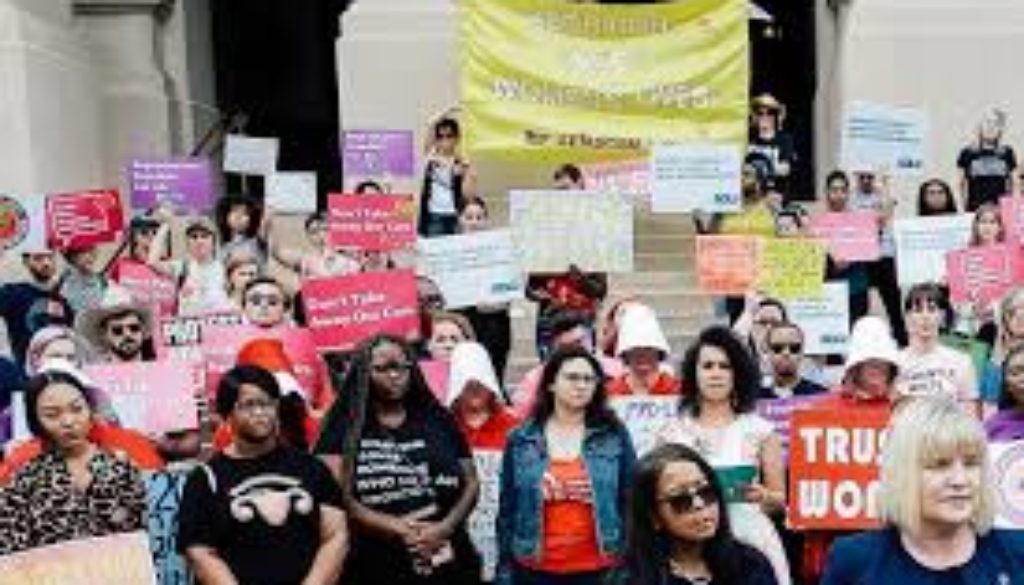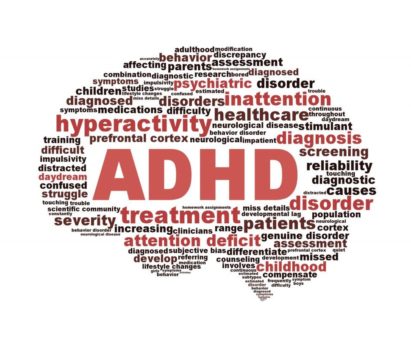No Uterus, No Opinion
Going into effect in January of 2020 is the LIFE bill, or the Living Infants Fairness and Equality Act. It is nicknamed the Heartbeat Bill and has successfully passed in Ohio, Missouri, Alabama, and Georgia. This bill makes all abortions performed after six weeks of pregnancy illegal unless the mother’s life is in danger from the fetus. There are no exceptions for rape or incest, and performing an abortion could lead to murder charges and ten years in prison!
The Protests
Many people have protested this law and others like it across the nation. Most of these protests speak of women having the right to choose, and how a woman’s body is her own. Bodily autonomy was a common theme with a young woman named Rachel S., age 21.,. Multiple times, she referenced a woman’s body is her choice, and stated that this piece of legislation made her feel scared. She even raised the point that access to contraceptives might be the law-makers’ next target.

It astounded the young woman when I told her that 50% of the proposers were women; Representatives Jodi Lott, Darlene Taylor, and Ginny Ehrhart were the women who proposed this bill along with three men. The fact that women, who are supposed to represent the will of their constituents, suggested a law that restricted a woman’s rights over her own body is, frankly, terrifying.
Women who came out to protest in Atlanta the signing of this bill into law carried signs that had variations of “My Body, My Choice,” written on them. There were also women dressed as handmaid’s from the Hulu show,The Handmaid’s Tale, hinting that stronger legislature against women’s autonomous rights will be on the way.
A Woman's Body, a Woman's Voice
Rachel S., feels helpless and that she didn’t know how she could make a difference against this law. The restraints placed on women’s bodies will not necessarily reduce the number of abortions. However, it is more likely that women will seek abortions in other ways, raising the number of unsafe abortions that put the mother at risk.
It is unsure whether or not the representatives who proposed this bill took this into account when they put it forth to their chamber of Georgia government. With men making up over half of the elected officials in Georgia’s State Government, women are not getting the accurate representation that we need.
Since men were the primary gender who passed this piece of legislation, it is clear that they do not completely understand what happens to the female body during and after pregnancy. Nor what it means to have to carry a fetus for nine months

Women make up less than half the individuals in Georgia’s government, topping out at 41%. Perhaps if we had a more equal proportion of women in Georgia’s government, this law could have been stopped before it even left the House of Representatives. Women would still have the rights to their bodies, and Georgia might be a safe place for women’s rights.
This is Not the End
However, this bill becoming a law is not the end of our rights. We can still protest the restrictive nature of this law. Write your representatives and senators now! By showing our deep discontent, we might be able to change it, even reverse it. Do not be afraid to state your rights about your own body.
We, as women, deserve the rights to our bodies. We deserve reproductive rights.
![]()
While this legislation is still in place, continue to protest! If you find yourself in a tough position, seek out your local Planned Parenthood clinic for information and advice.
These are the best locations to go when you need information on reproduction, your body, and options that you can pursue. If you find yourself unable to go to a clinic, for whatever reason, Planned Parenthood offers online and text chat options. Never feel as if you are out of options, or trapped.





